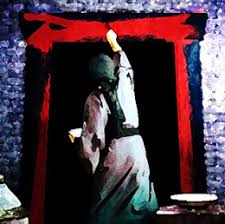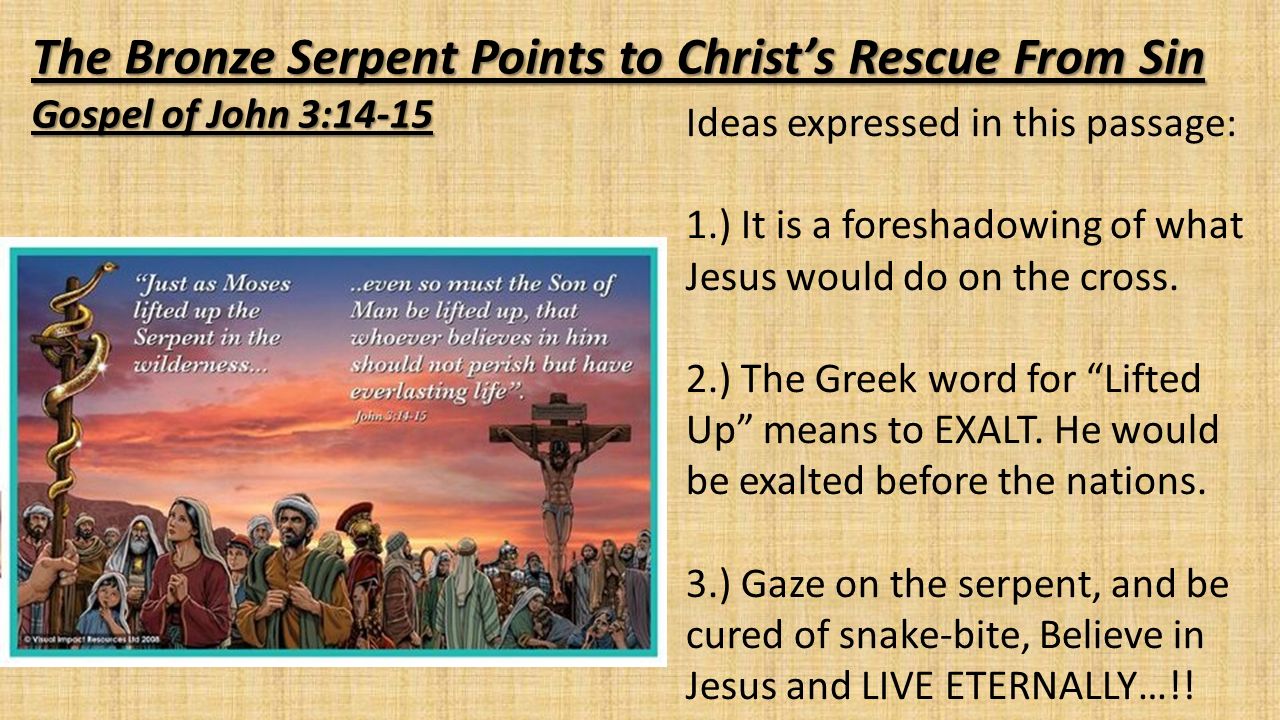Passover – Redemption / Protection
It was through the shed blood of a lamb being applied to their doorposts that the Israelites received YHWH’s divine protection from the final plague to befall Egypt. It was through this same sacrifice that Israel was redeemed from Egyptian bondage.
The New Testament writings of Paul to the Corinthians teach us that Yeshua the Messiah is our true Passover lamb. 1 Corinthians 5:7 says;
He has totally fulfilled the shadow of that original sacrifice, dying at the exact moment the Passover lambs were being sacrificed by the Jews. Now it is his blood that redeems us from our bondage to sin (a type of Egypt). It is also his blood upon the door posts of our hearts that provides us divine protection from YHWH’s wrath to come. We see this in 1 Thessalonians 1:10 and Romans 5:8,9;
Feast of Unleavened – Sanctification
Israel’s deliverance from Egyptian bondage came on the first day of this Feast (Abib 15). It is a type of how believers are delivered from this world. Once a person accepts Yeshua as their Savior and receives divine redemption and protection through his shed blood, he must begin his journey to the promised land. He begins his exodus out of this worldly system (sanctification or being set apart) and starts to walk in the newness of life that comes only through a relationship with Yeshua, the Son of YHWH.
As a requirement for observing this Feast, Exodus 12:15 reads;
Leaven represents sin, false doctrine, and hypocrisy. We are not only to rid our homes of leaven during this appointed time, but we are to rid our hearts of these things as we grow in grace and truth. It is part of our sanctification process or the process of coming out of this world. Since this is an ongoing process that will continue until Messiah returns, we cannot do away with the shadow of the Feast of Unleavened.
Continuing Paul's words in 1 Corinthians 5:8;
May all who keep these days be blessed this Passover season.
Exodus 12:3,6,7,12,13 – “Speak you unto all the congregation of Israel, saying, In the tenth day of this month they shall take to them every man a lamb, according to the house of their fathers, a lamb for an house: . . .And you shall keep it up until the fourteenth day of the same month: and the whole assembly of the congregation of Israel shall kill it in the evening. And they shall take of the blood, and strike it on the two side posts and on the upper door post of the houses, wherein they shall eat it . . . For I will pass through the land of Egypt this night, and will smite all the firstborn in the land of Egypt, both man and beast; and against all the gods of Egypt I will execute judgment: I am YHWH. And the blood shall be to you for a token upon the houses where you are: and when I see the blood, I will pass over you, and the plague shall not be upon you to destroy you, when I smite the land of Egypt.”
It was through the shed blood of a lamb being applied to their doorposts that the Israelites received YHWH’s divine protection from the final plague to befall Egypt. It was through this same sacrifice that Israel was redeemed from Egyptian bondage.
The New Testament writings of Paul to the Corinthians teach us that Yeshua the Messiah is our true Passover lamb. 1 Corinthians 5:7 says;
“Purge out therefore the old leaven, that you may be a new lump, as you are unleavened. For even Messiah our Passover is sacrificed for us:”
He has totally fulfilled the shadow of that original sacrifice, dying at the exact moment the Passover lambs were being sacrificed by the Jews. Now it is his blood that redeems us from our bondage to sin (a type of Egypt). It is also his blood upon the door posts of our hearts that provides us divine protection from YHWH’s wrath to come. We see this in 1 Thessalonians 1:10 and Romans 5:8,9;
“And to wait for his Son from heaven, whom he raised from the dead, even Yeshua, which delivered us from the wrath to come.”
“But God commends His love toward us, in that, while we were yet sinners, Messiah died for us. Much more then, being now justified by his blood, we shall be saved from wrath through him.”
Feast of Unleavened – Sanctification
Exodus 12:17 says, “And you shall observe the feast of unleavened; for in this selfsame day have I brought your armies out of the land of Egypt: therefore shall you observe this day in your generations by an ordinance for ever.”
Israel’s deliverance from Egyptian bondage came on the first day of this Feast (Abib 15). It is a type of how believers are delivered from this world. Once a person accepts Yeshua as their Savior and receives divine redemption and protection through his shed blood, he must begin his journey to the promised land. He begins his exodus out of this worldly system (sanctification or being set apart) and starts to walk in the newness of life that comes only through a relationship with Yeshua, the Son of YHWH.
As a requirement for observing this Feast, Exodus 12:15 reads;
“Seven days shall you eat unleavened; even the first day you shall put away leaven out of your houses: for whosoever eats leaven from the first day until the seventh day, that soul shall be cut off from Israel.”
Leaven represents sin, false doctrine, and hypocrisy. We are not only to rid our homes of leaven during this appointed time, but we are to rid our hearts of these things as we grow in grace and truth. It is part of our sanctification process or the process of coming out of this world. Since this is an ongoing process that will continue until Messiah returns, we cannot do away with the shadow of the Feast of Unleavened.
Continuing Paul's words in 1 Corinthians 5:8;
"Therefore let us keep the feast, not with old leaven, neither with the leaven of malice and wickedness; but with the unleavened bread of sincerity and truth."
What feast is Paul admonishing the Gentile converts in Corinth to keep? The Feast of Unleavened Bread which directly follows the Passover sacrifice.
May all who keep these days be blessed this Passover season.




